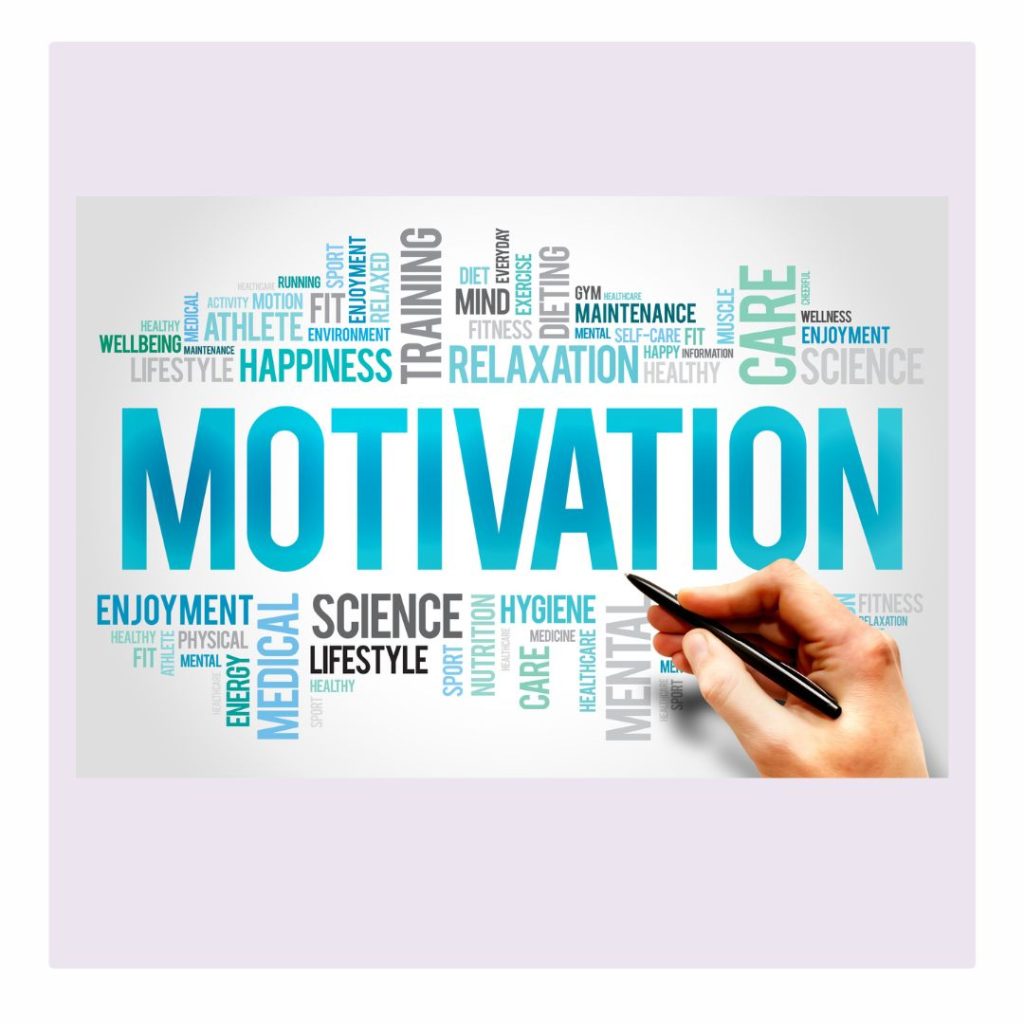Motivation plays a big role in writing a book, and understanding how I interpret and work with or against my unique motivators helps me to achieve more.
I love the entire process of writing a book. From the initial spark of an idea right through to the edits, you are on a developmental journey that tests your skill as a storyteller and your resolve as a writer. Of course, as every writer will testify, a lack of motivation can plague this journey at various stages and sometimes prevent a work in progress from ever being completed.
I have a terrible habit of self-sabotaging when my motivation is low. I try to block out the inner Negative Nelly, but she just shouts a bit louder. I’m certain anyone reading this post will be able to relate to this situation. You may have started working towards a goal, only to slide back down the slippery slope of non-serving behaviour.
How I motivated myself to succeed
When I started writing How I Motivated Myself to Succeed, I had a huge inner conflict and threw 30,000 words in the bin, giving up on the entire project. It took a fair amount of self-work before I could pick up the idea and begin again.
What I realised during this painful time was the emotional freedom I longed for was on the other side of this self-sabotage and my lack of motivation.
We hold onto unhealthy thought patterns and behaviours, which only drain our physical energy and our emotional dreams. Those feelings of unworthiness may stem from a childhood issue or situation, but we’ve dragged them, like an oversized suitcase, into our adult lives.
To complete my book, I knew I had to make drastic changes. I had to dig deep and discover the reason behind my self-sabotage so that I could rethink how it impacted my decisions, thoughts, and life and turn my motivational slump around. I uncovered the negative beliefs I had about myself and the simple fact that I didn’t expect to succeed as a writer. By believing this, I was depriving myself of a lifelong dream and blocking my creativity.
Instead, I looked for the positive evidence:
- My first non-fiction book had gathered over one hundred five-star reviews.
- That book also attracted the attention of Penguin Random House.
- I’ve been booked to talk about changing your life at various events across the UK.
- I’ve created many more unique opportunities.
When I tune out that negative inner critic and look at the real statistics, I can start to overcome the self-sabotage and enjoy being a successful writer. This uplift in mood has a knock-on effect on my motivation.
Think about the way you talk about yourself and the language you use. Is it negative or positive? Try being nicer to yourself, and you’ll be amazed at what you can achieve.
Where does motivation fit into all of this?
Let’s break motivation down into two camps.
1. Camp number one is intrinsic motivation.
When I was 8 years old, I had a dream to become an author. I wrote my first book when I was 10 and illustrated it myself. It was a graphic account of our junior school leavers’ trip to the middle of nowhere in Wales. I’ve still got those pages in my desk drawer.
That dream of a young girl to become a real author stayed with me – deep inside.
I didn’t have a clue about publishing or the book world; I just knew that I loved making stuff up! I enjoyed creating characters and would dream up fantasy worlds and populate them with my new character friends. I was driven to write by the sheer joy of the action.
Reflections:
- What do you love to do?
- What would you do for the rest of time even if you weren’t going to get paid for it?
That’s intrinsic motivation – there is no end goal, there’s just a passion.
2. Camp number two is extrinsic motivation.
Fast forward to a life of ups and downs. College, career, marriage, kids, divorce and suddenly, I’m 40 years old with a distant memory of wanting to be an author.
I’d gathered all this life stuff and stories – some of it funny, some of it emotional, some of it scary, but all of it was mine.
I started writing again. This time, I knew about publishing and the book world. I understood what a manuscript submission meant, and I’d done my homework and begun building an author platform.
I had an engaged audience eager to read what I was writing.
I had a publisher who wanted to share my work.
I had a deadline for the first time!
That’s extrinsic motivation – I still wanted to write, but now I had an external goal to meet.
Reflections:
- What goals have you set for yourself?
- What rewards do you allocate when you achieve success?
In life, you’ll find that you have a mix of intrinsic and extrinsic motivation. For me, I still have my childlike passion for writing, but I also get paid for what I produce. That’s a mix of my internal and external motivators working together beautifully.
What happens when your motivation tanks run dry?
I’m going to share some of the advice I give my writing clients when the initial excitement of writing a book has worn off and they realise they’ve got to sit their bum in the chair and actually write the damn thing!
Make a plan – in the book writing world, this is called an outline or plot. Getting clear on what you want to accomplish helps you feel more motivated.
Build a routine – I actively encourage my writing clients to set aside writing time and be fiercely loyal to it. Sometimes, they set aside the time but can’t find the words – remember this: ‘Action doesn’t require motivation. Motivation requires action.’ Start each day or writing session with a routine – a writing prompt or a clear desk – whatever works.
Rewards – nothing motivates me more than a chocolate bar! We are naturally wired to react to incentives, so reward yourself for hitting your goals.
Accountability – sometimes, the best motivation comes from peer pressure. Ask your friends or colleagues to bum-kick you when necessary. My writing clients get a monthly Zoom call with me where I sometimes have to talk them off the ledge – that’s fine. By talking things over, they feel motivated to hit their writing goals for the next month.
Stay positive – positive people are naturally more motivated. They see the benefits in forward movement, love the challenge of a setback, and can lift their mood with a cheery thought or action.
Effective self-motivation is one of the main things that distinguishes high-achieving professionals from everyone else. Have a go at implementing a few of the tips I’ve shared here into your daily life, and let me know if it helps with your motivation.

Shelley Wilson is a multi-genre author, award-winning blogger, and a writing mentor. She writes non-fiction self-help/personal development titles, children’s non-fiction, historical fiction, and young adult novels. When she’s not working on her own titles, she mentors women in business to write their books to boost their visibility and brand.
Connect with Shelley here: https://linktr.ee/ShelleyWilson72
Find all of Shelley’s motivational books here: https://shelleywilsonauthor.com/my-books/




